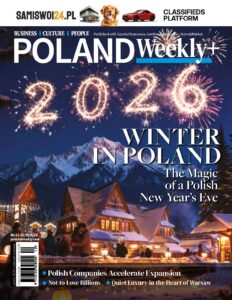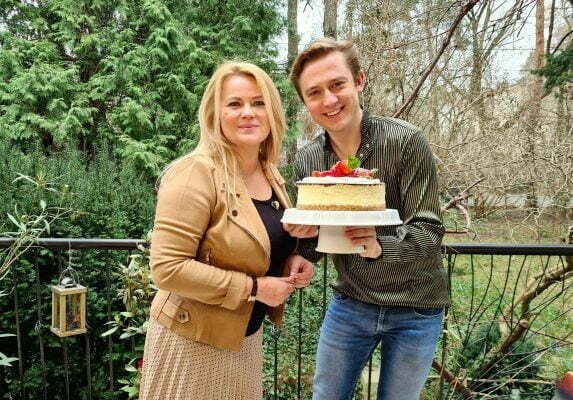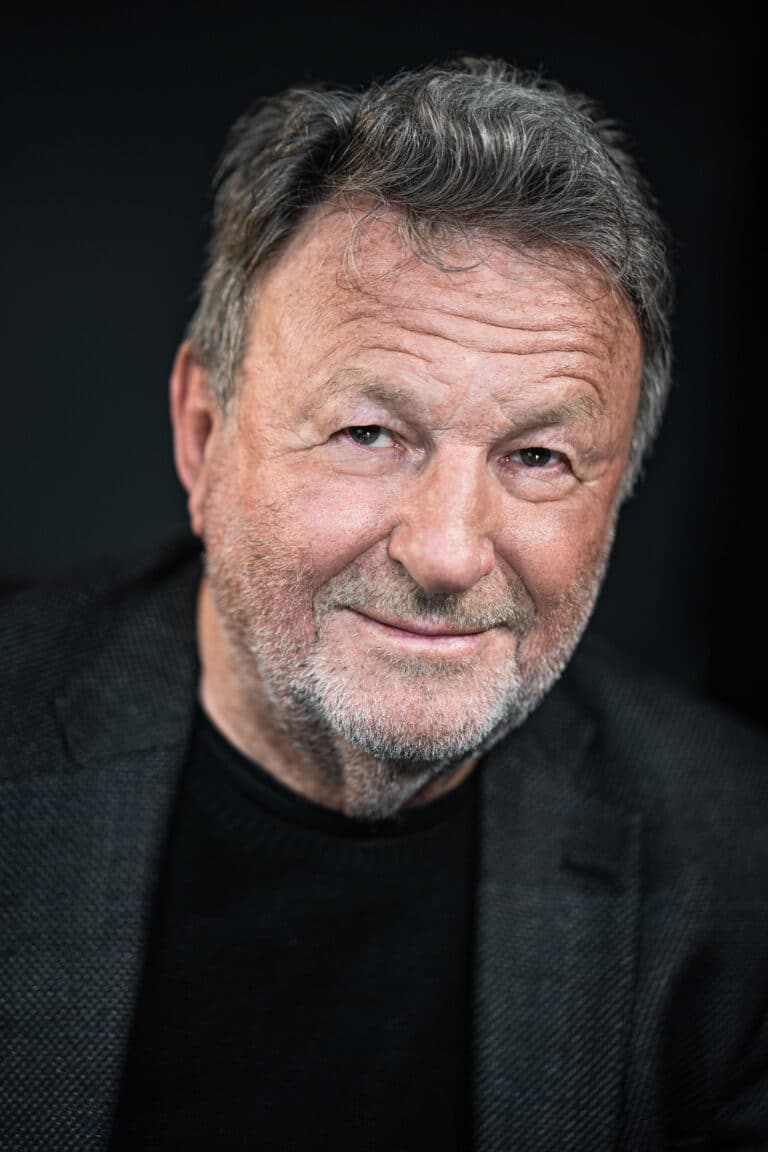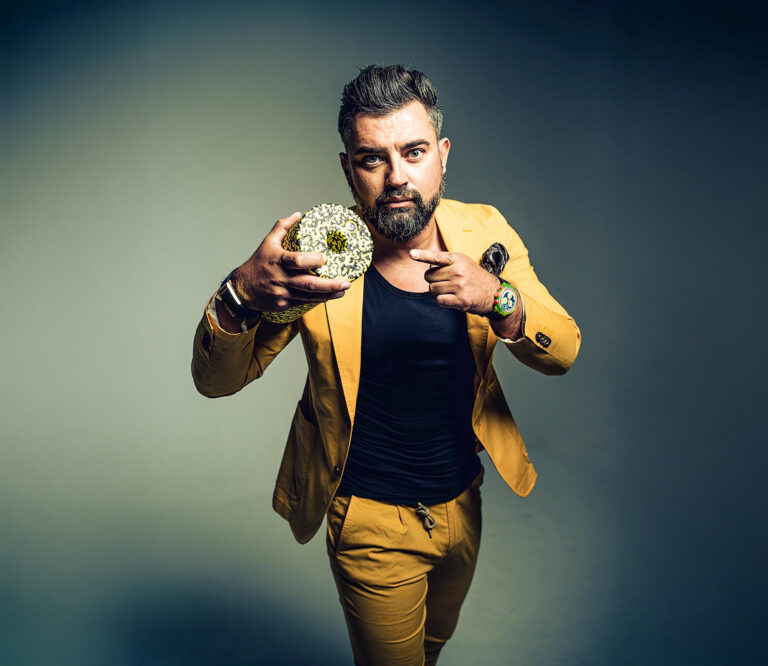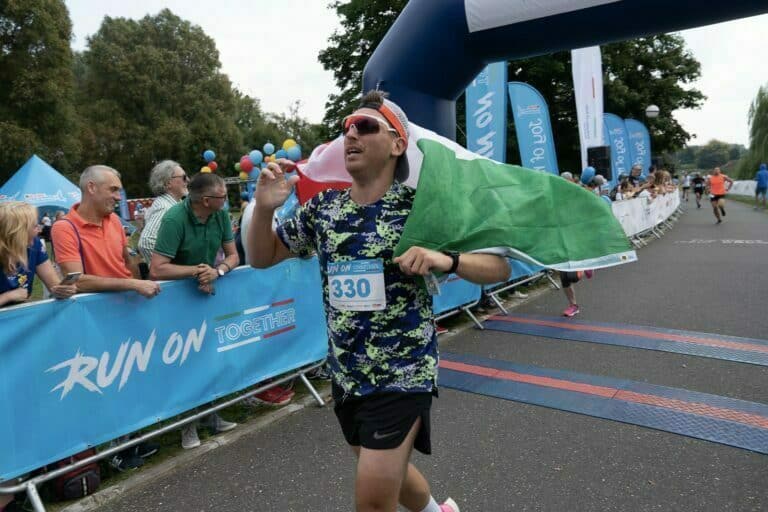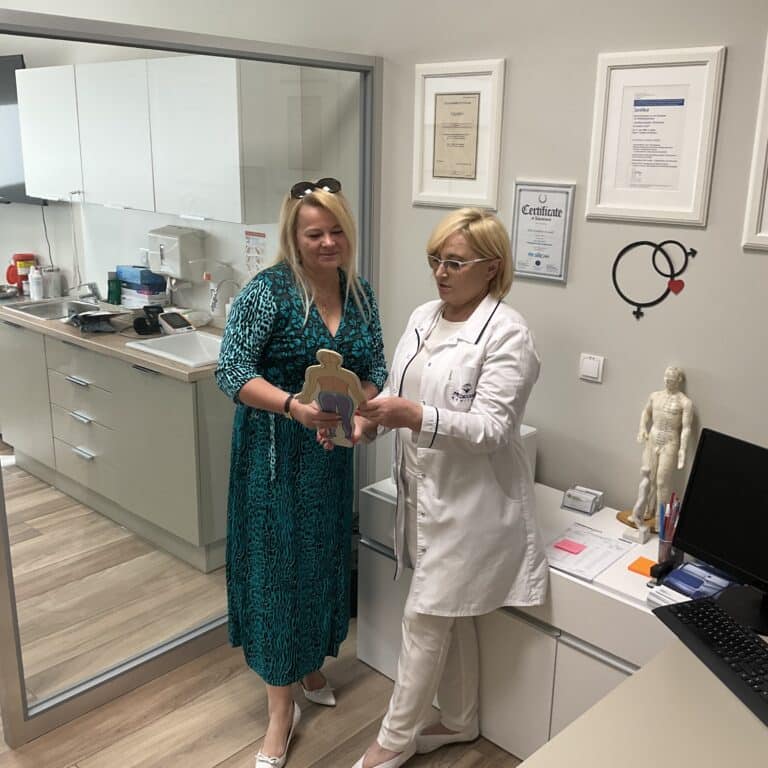KIEŚLOWSKI, WROCŁAW AND THE MATTER OF IDENTITY
Andrea Bandirali is an Italian economist who has been living in Poland for the past 18 years. Based in Wrocław, he is the Secretary General for the CEE at italDesk – an Italian Independent Business Agency.
Connecting markets and people is your job and your mission. Is that how you first got connected to Poland?
This connection goes way back to my childhood. The author of the Polish national anthem – Józef Wybicki, lived in the XVIII century in my hometown Reggio Emilia. There’s still a special memorial plaque on the building, where he wrote ‘Mazurek Dąbrowskiego’. I remember one summer at the seaside in Italy, when I was very little. It must have been around 1980 – 1981. We met a Polish man, who as a souvenir gave me a pin with ‘Solidarność’ sign. There was always something connected to Poland around me, but my true fascination began when I was in high school – with Krzysztof Kieślowski and his incredible, captivating films. Especially the early ones had built in my head this intriguing image of Poland as a big country with this big history, but at the same time so mysterious – completely unfamiliar to the West.
When did you come to Poland for the first time?
On the InterRail trip in 1992, before I even graduated high school. And it felt like I’d discovered some secret garden… During this first trip I visited Kraków, Warsaw and Gdańsk. Later on, at school and when I was at university, I made a lot of Polish friends thanks to all kinds of youth integration programs (Poland was not a member of European Union back then). And that’s how I met one of my best friends – Maciej. He invited me to Wrocław and I just fell in love with this city. I was studying International Economics in Germany at the time. After visiting Wrocław I enrolled at another faculty – Slavistics, and that’s how I learnt Polish. I even got a scholarship and went to study in Warsaw for a year.
And you stayed?
No, I went back to Italy for a little while and then I got a job in Germany in the Italian Chamber of Commerce. I built a very stable and good life there and I stayed for the next 8 years. I came here in 2004 when Poland joined European Union.
Why did you decide to leave Germany for Poland?
I had a great job, my own apartment and I was in a serious relationship. But as it happens, we broke up and life in Germany started to look completely different to me. I had no drive to function there anymore. It’s a fantastic country – I learnt and I’m still learning a lot from Germans, but to be honest – it’s just too organized for someone who needs to develop new ideas. So I found an apartment in Wrocław and moved. Maybe it’s a little bit irrational but moving to Poland gave me this feeling of freedom that I was craving for so much.
How so?
Traditionally and mentally Poland is a catholic country. This is the basis for some particular social values that are very difficult to encounter in the protestant legacy. There is just a completely different level of solidarity between people here. This contrast is really easy to spot. Imagine going on vacation to Sharm el Sheikh where, for certain, you’re going to see Poles and Germans eating dinner in separate lounges. The one with Poles is going to be cordial, a little too loud – full of conversation and interaction. The one with Germans is going to be very quiet and discreet, so even a fly would be scared to fly through.
We do seem to be a better fit for Italians…
Definitely. Even Polish cuisine fuses much better with the Italian.
Do you like Polish food?
I like to cook and I like to play with cuisine and mix it. I cook a lot of Polish meals but they are always ‘a la maniera italiana’. /laugh/ I make Neapolitan pierogi, kotlet schabowy with cheese and mushrooms, risotto with cabbage… And today it’s really easy to buy real Italian products and ingredients here.
Is there something you miss in Poland or something you would change?
Sometimes I wish Poles were more relaxed – a little less serious and stressed. Not every problem needs to be taken to the level of war. But even this tension is nothing comparing to the fantastic traits you have. Poles are really curious about everything that’s new. They have the enthusiasm of little kids. But most importantly they engage and care about others and their environment. When they see something wrong, they react. Poles are not indifferent contrary to most of the Western European nations. We can see what happened after Russia invaded Ukraine. Even if someone here isn’t too friendly, they still understand they need to help. I really like Poles and I hope you will resist the negative social changes that have already happened in some Western countries, like assessing the value of yourself and others based on money.
Not that long ago the make and size of the car were still a status symbol for Poles. You would never observe something like this in Italy.
That’s because we chose a different status symbol. /laugh/ In Italy it’s what you’re wearing that makes the statement. Clothes and the way you carry yourself are incredibly important. Besides, Italian urbanism doesn’t live any space for the car culture – you do not really drive in the big cities and the small ones are usually medieval – there’s just no space for it. Poles on the other hand used to go to Germany for seasonal jobs a lot. I think that’s where it came from. It’s very German.
You’ve lived here for the past 18 years and Wrocław, professionally and privately, has always been your base. What’s special about this city for you?
It’s a matter of identity. Most Italians would probably feel much better living in Kraków, at least at the beginning. It is a very Italian city in terms of Renaissance architecture, so it would be easy to feel like home. But the sense of real belonging is really impossible to achieve there for an outsider. To really ‘be from Kraków’ your family would have to be living there for generations. It’s a great place to visit, but if you want to assimilate, you’ll always feel out of place. Wrocław became home to me very fast. It’s such an inclusive and welcoming place, but most importantly – a very young city. So even if you weren’t born in Wrocław, you’re still a Wrocławianin and nobody’s going to question that. Besides – even though Poles live there, it’s not quite Polish. So there is this constant question mark over the city, which gives it a very special quality. If this isn’t Breslau and it’s not quite Polish, then where are we? We are home.
